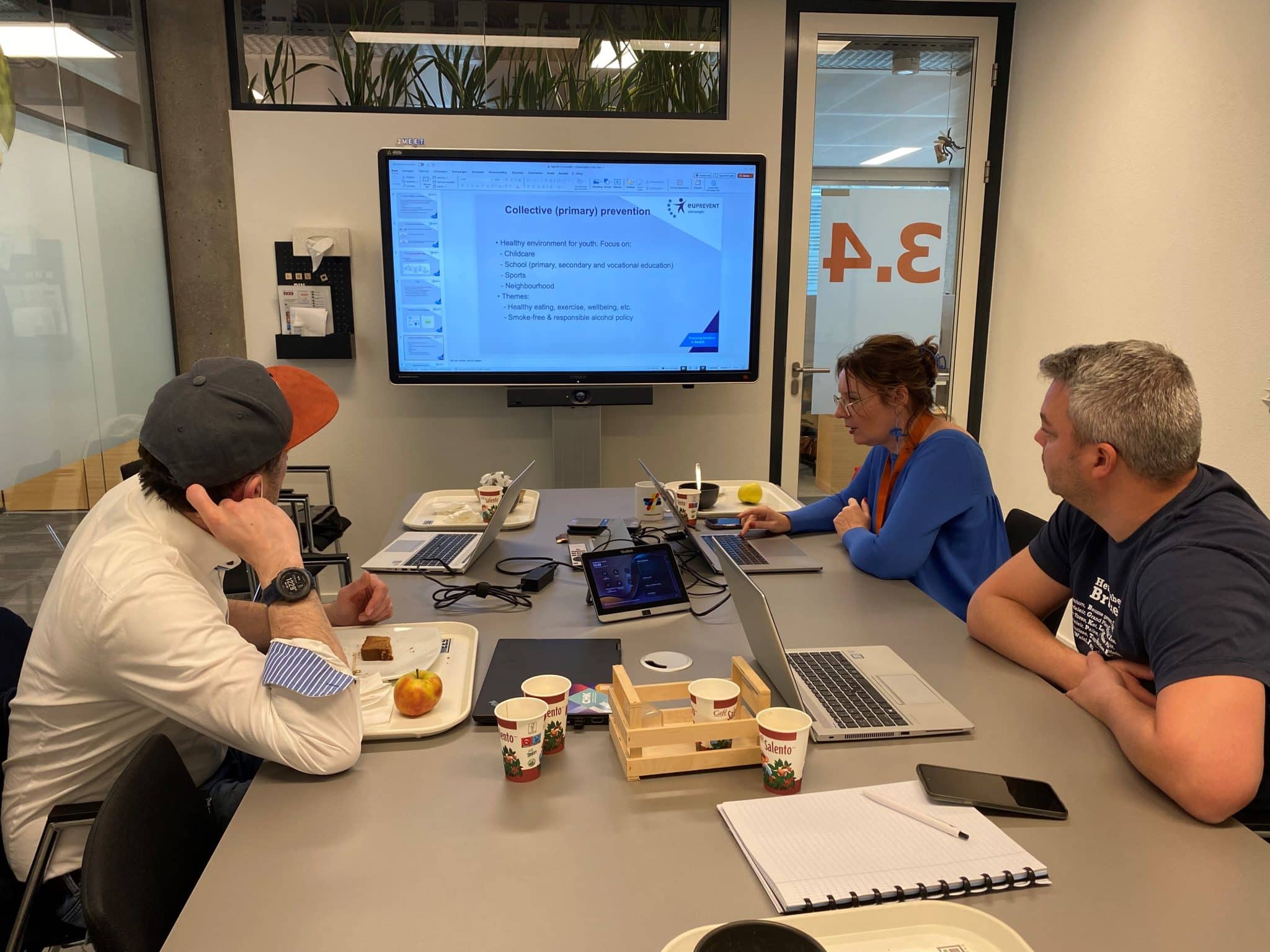Collaborative efforts in combatting overweight
March 22, 2024

In a recent exchange organized by euPrevent focusing on “Overweight,” several partners shared their insights.
Given different health systems in neighbouring countries, the population in the border regions are confronted with great challenges. Moreover, when health promotion is not seen as an obligation for the municipality, the health of the communities can largely vary. On the other hand, euregional collaboration is still possible if stakeholders commit themselves listening to each other to build mutual understanding. Many problems are common on different sides of borders, learning from each other can be useful and even more effective than starting from scratch.
Amidst the discussions, the Dutch approach to tackling overweight emerged as a notable example of best practice. Highlighted was the national programme JOGG (stands for “healthy youth, healthy future”), which emphasizes a comprehensive, integrated prevention approach. With over 200 participating municipalities, JOGG serves as a model for sustainable, community-wide interventions.
Additionally, Flemish obesity care initiatives gained attention, with programs like “Ik heb een maatje” (I Have a Buddy/Body) in Genk showcasing innovative, family-oriented strategies. By involving families in intervention planning and addressing root causes, such initiatives aim for holistic and enduring impact.
Overall, the exchange emphasized that overweight is a multifaceted issue requiring concerted efforts from various sectors. Whether as professionals, entrepreneurs, parents, or educators, collective action is essential to effectively address the challenges of overweight and promote healthier lifestyles for youth and communities.
